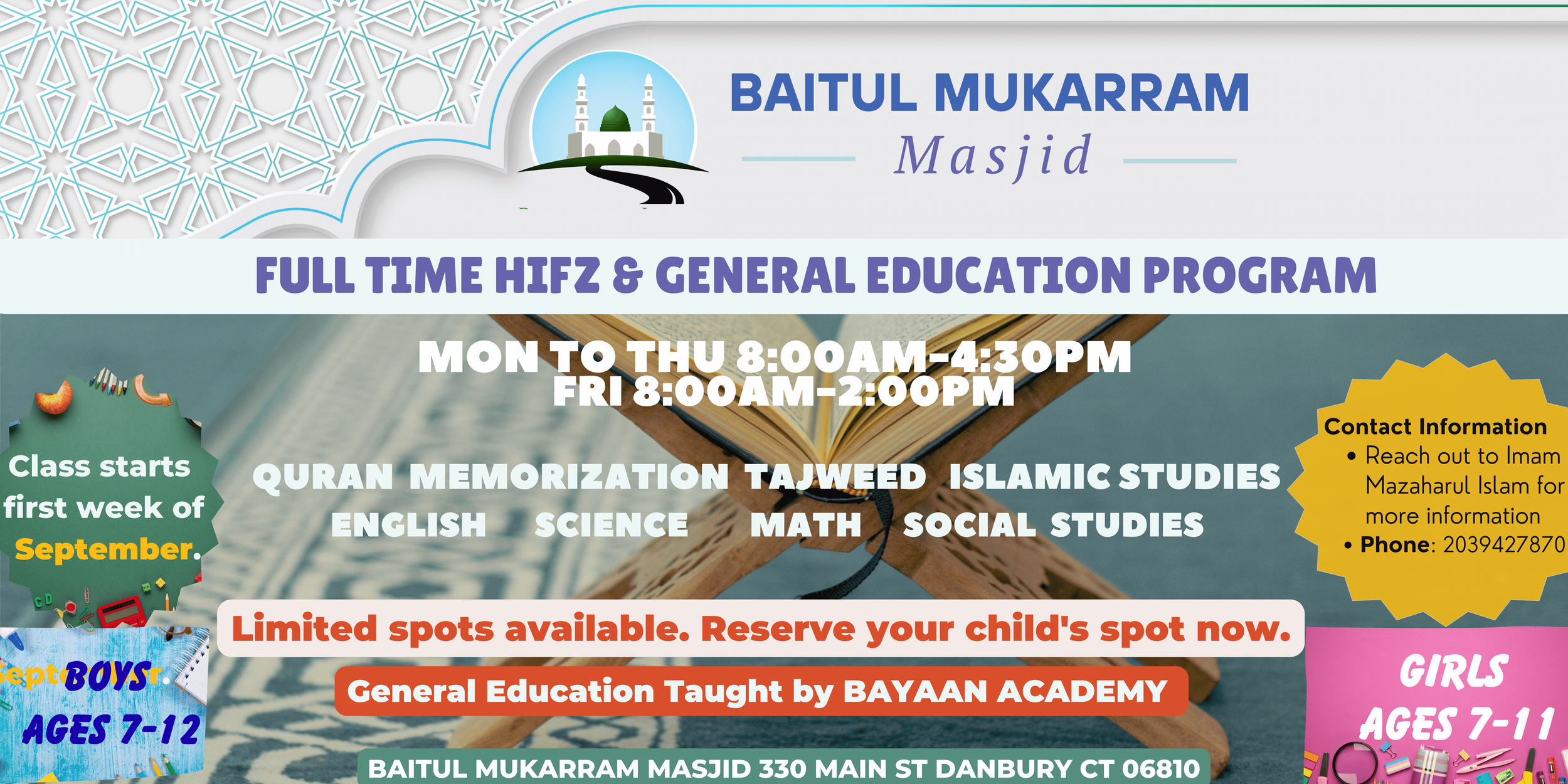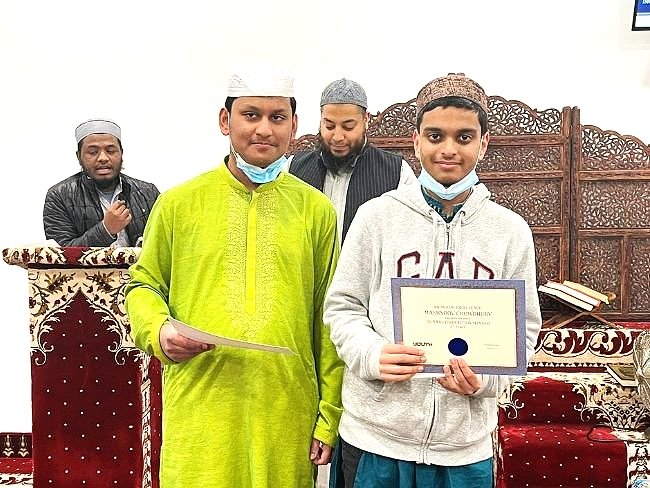HIFZ & MAKTAB PROGRAM

Quick Links for Parents
“It was such a joy to hear boys and young men enjoying their time. You have created a great environment for them. Thanks for guiding our future generations. It is a lot of hard work. ”
About Our Islamic Program
-
Quran & Islamic Studies
-
Mondays-Thursdays 5:30-7:30PM
-
For Boys Ages 5+ and Girls Ages 5-12
وَمَنْ سَلَكَ طَرِيقًا يَلْتَمِسُ فِيهِ عِلْمًا سَهَّلَ اللَّهُ لَهُ بِهِ طَرِيقًا إلَى الْجَنَّةِ
And whoever follows a path to seek knowledge therein,
Allah will make easy for him a path to Paradise.
Related by Muslim
Empower Your Children
Although Muslim families transmit their religious affiliation to their children at higher rates than Christians in America, approximately 20% of those raised as Muslims do not identify as Muslim in adulthood.
Enroll Them Into a Structured Program
The goal of the AlMaktab After-School Program is to provide a structured Islamic education program to preserve Islam in our future generations.
Give Them the Gift of Jannah
The AlMaktab After-School Program is the simplest method to preserve Islam in our future generations. It is accessible and inexpensive. Muslim children in public school can easily join the evening maktab program.
The AlMaktab After-School Program consists of the following comprehensive curriculum:
Learning How to Read Quran
Recitation of the Quran with fluency and tajweed
Memorization of:
Surahs
Daily prayers of the Prophet ﷺ
Hadith
Learning the Basics of Islam
Aqidah: Foundations of Iman, refuting atheism, etc.
Fiqh: Purity, prayers, business, family, halal/haram, fasting, charity, hajj, funeral, inheritance, Islamic calendar, interaction with other faith members, etc.
Akhlaq & Adab: Manners and etiquettes with parents, neighbors, siblings, teachers, colleagues, classmates, business partners, community members, animals, etc.
Hadith: Sayings, actions and approvals of our Prophet Muhammad ﷺ
Sirah and Tarikh: Biography of our Prophet ﷺ and the history of Islam
Implementing Islamic Practices
Purity, wudhu, salah
Instilling sunnah habits (eating, sleeping, bathroom, dressing, personal hygiene, etc.)
Application of prayers of the Prophet ﷺ in daily life
Moral and character development in practical life practicing khidmah (serving others: parents, siblings, and all people in general)




